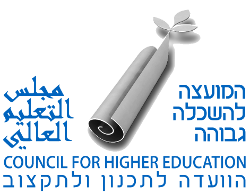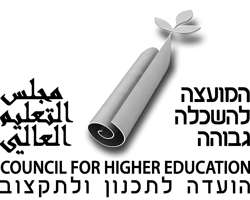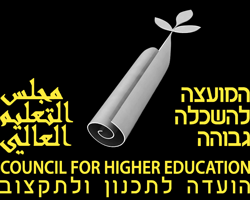Collection of Data for Start of Year 2019/2020
The Israeli Higher Education System – 2010-2019:
A Decade of Academic Excellence: Doubling Budgets, Accessibility, and Reinforcing Research
- Doubling the budget of the higher education system: From NIS 6.9 billion (2010) to NIS 11.8 billion (2020)
- OECD Ranking: Israel maintains its second place ranking in the world in the percentage of persons with a post-secondary and higher education among persons aged 25-64.
- Throughout the decade, there has been a significant increase in the number of students in Israel at all degree levels.
- Since the middle of the current decade, the number of students has stabilized, primarily in undergraduate degrees, and there has been a clear increase in their numbers in the last two years.
- Bachelor’s Degrees Programs: Engineering studies is the most popular course of studies in Israel.
- Doubling the number of women in computer science (including in mathematics and statistics).
- Making higher education more accessible to the socioeconomic periphery: Over four years, there has been an increase of more than 8,000 students coming from towns located in low socioeconomic clusters (clusters 1-4).
- Making Higher Education Accessible to Arab Society: For the first time ever, the Israeli higher education system has more than 50,000 Arab students.
- The Excellence Program for Persons of Ethiopian Extraction: There has been an increase of 35% in the number of Ethiopian students in the last 5 years.
- The Digital Learning Revolution: Persons above the age of 40 are returning to academia.
- Strengthening Research – within a decade: The annual budget for research funds in Israel has more than tripled.
- Significant Increase in Awards from Research Funds and Academic Publications
Chair of the Planning and Budgeting Committee, Prof. Yaffa Zilbershats: “The current decade has been characterized by excellence and amazing development in the academic system. Large budgets enabled the system to expand its accessibility programs and open the doors of academia to all population groups. There has been a significant increase in investment in research, funds, and infrastructures, as well as flagship subjects: Data science and artificial intelligence, personalized medicine, and quantum science and technology. Similarly, the number of academic publications has increased, and thanks to the national program for reinforcing high-tech subjects, engineering studies are currently the most sought after course of study in Israel. The digital academic learning revolution is at its apex, and now, for the first time ever, the system is promoting entrepreneurial and innovation studies and opening academia to collaborations with industry.”
Deputy Chair of the CHE, Prof. Ido Perlman: “The CHE has, over the last decade, invested great resources in promoting academic excellence in research and teaching, in making higher education accessible to all strata of the population, and in developing a broad spectrum of fields of study, enabling every citizen of Israel to acquire a higher education. Israeli universities are located at the top of the international rankings, and Israeli researchers earn many achievements. The academic system in Israel will continue to act to integrate them into industry and research in all sectors, with an emphasis on gender, periphery, and unique populations.”


